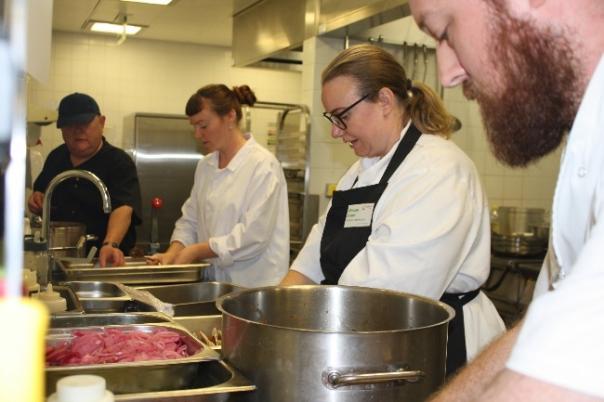
FareShare Midlands is launching an innovative new meal production project in the commercial kitchen at Loxley House, Nottingham City Council’s HQ.
In partnership with Nottingham Catering at the City Council, FareShare UK and Sainsbury’s, it will produce meals to be delivered directly to local charitable and not-for-profit organisations who are tackling hunger, poverty and the escalating effects of the cost of living crisis.
FareShare Midlands, the region’s largest food redistribution charity, says that currently 22,500 children are living in poverty in Nottingham City, a number that grows to 58,000 across the whole county.
FareShare Midlands chief executive Simone Connolly says: “Meal production is another way for us to unlock even more surplus food from the food industry.
“It brings greater flexibility in terms of shelf life and usability, as cooked meals and ingredients can be frozen and stored for later use.
“Local community organisations and charities will be able to offer these meals to vulnerable families in need - whether as part of a community pantry offering, community café service or holiday activity programme.
“We would also love to see new social eating activities launched, to help people fight the isolation and loneliness that grew during the Covid-19 pandemic. We are hopeful that these meals will play a role in improvements in community health, wellbeing and social cohesion.
“The production of nutritious meals will further grow and diversify the range of surplus food that FareShare Midlands can accept, while reducing its detrimental impact on the environment when it is unnecessarily wasted.”
In full production, the kitchen team will prepare, process and cook enough surplus foods to provide 13,000 meals per month. Surplus foods saved and utilised by the team will equate to 5,460kg a month. Two chefs and a team of volunteers will use their culinary creativity to devise healthy meals with the ingredients that come in.